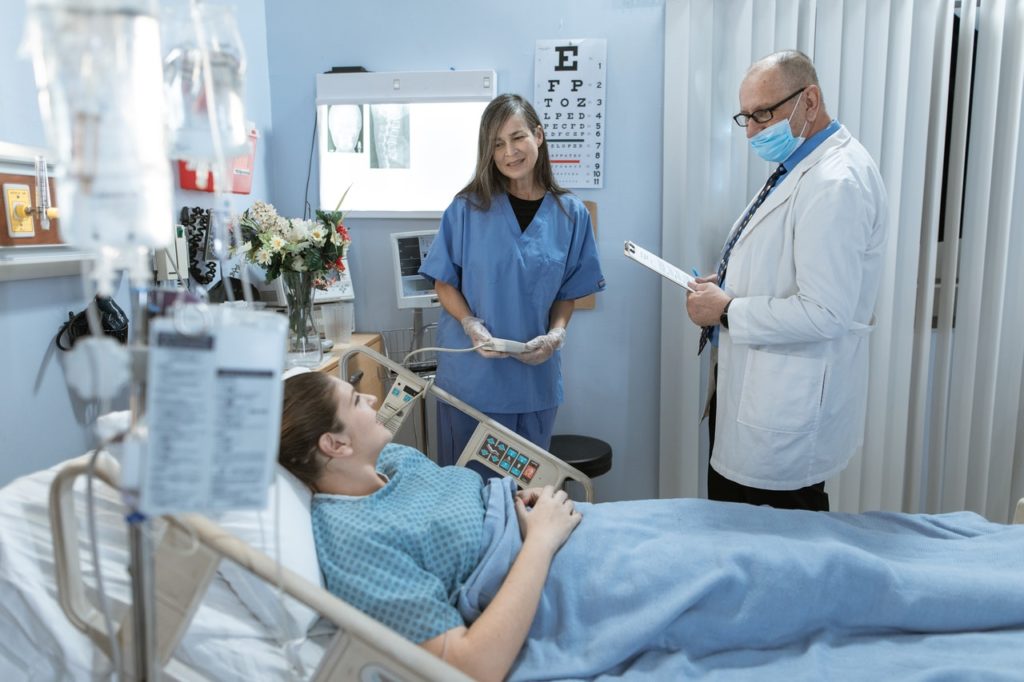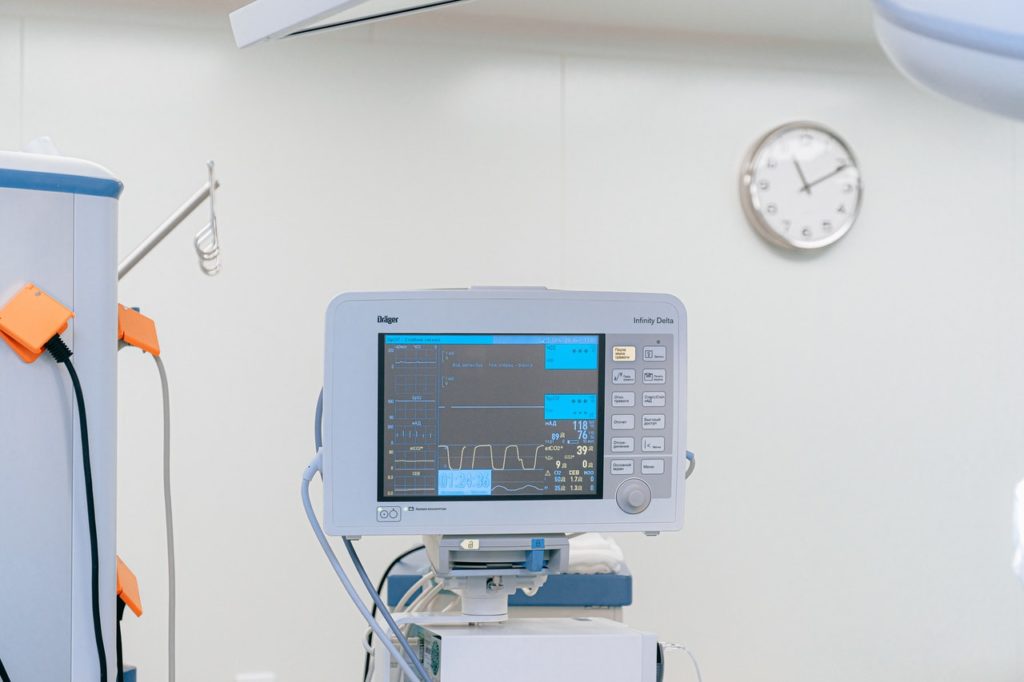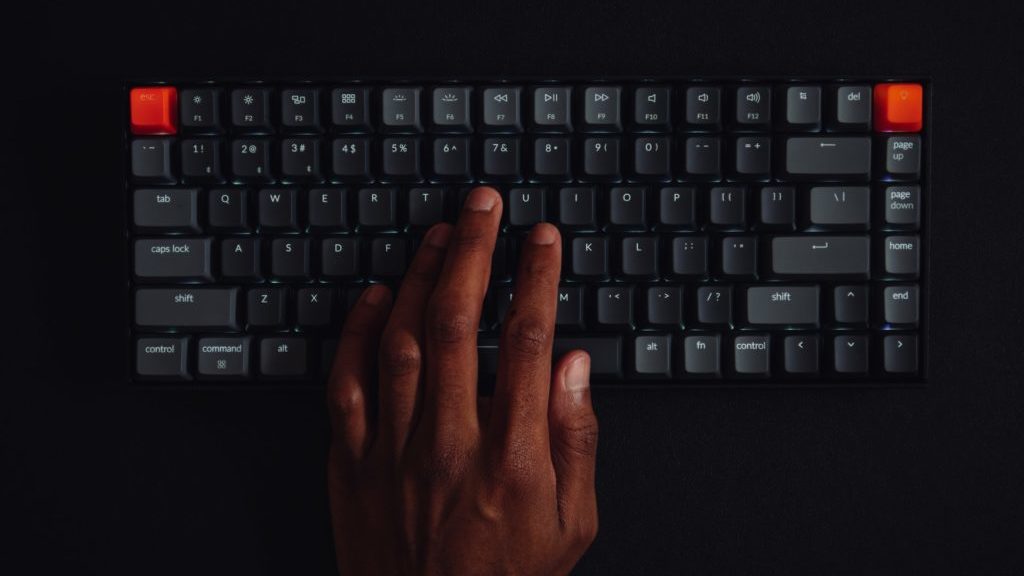
More Devices Mean More Challenges
The healthcare industry is one of the best examples where a multitude of devices are used daily by a large number of people, ranging from healthcare professionals to patients and visitors. Over the years the sheer number of devices used in the healthcare industry has grown and the Internet of Things (IoT) healthcare market is estimated to grow to USD 260.75 billion by 2027.
Increasingly, mobile computing devices such as phones, tablets, and portable computers are used to streamline certain administrative operations such as channelling/ appointment scheduling, report storage, set up self-service kiosks, and displaying information on doctors’ availability.
Devices used in this industry broadly fall within two categories – devices that are solely used for medical purposes and hospital operations, and devices used for patient entertainment purposes during their hospital stay (i.e. tablets with a range of apps that patients can use).
These devices, particularly those used for medical purposes and hospital operations, collect, store, and transmit sensitive personal data about individual health conditions and past medical records. Any data leak, whether accidental or in some cases deliberate, is costly both in monetary terms and reputational damage to the hospital or medical clinic. Moreover, the fact that many hospitals and medical clinics have BYOD policies adds a further level of complexity.
All these developments present a number of challenges to IT teams in this industry. For one, data security is of paramount importance. Secondly, these teams are responsible for device maintenance and oftentimes, this is a manual and time consuming task involving devices placed in many locations where a team member is required to be physically present. Thirdly, devices require frequent security and application updates, and monitoring. Finally, devices have to be replaced when they no longer function properly.
MDM Solutions Have the Capabilities To Empower IT Teams
This is where a Mobile Device Management (MDM) solution helps. Recently a large hospital chain that we worked with decided to use a MDM solution to securely manage all of the devices used across multiple hospital locations throughout the country. This hospital chain required the following:
- Centrally managed system – for tablets, phones, and public signage units used for channeling, bookings, and other operational functions.
- Automated updates – presently, security, OS, and app updates are performed manually.
- Enhanced security – anyone who has access to a device gains access to all the system level settings. Since a majority of these devices are located within public areas, it was impractical to limit physical access.
- Onboarding and authorization for devices – management software was not used for device onboarding and devices are connected to the hospital network for internal access.
- Prevention of malpractices – eliminate instances where sensitive data is compromised on purpose by any employees and the separation of access for work-related use from personal use where employees use their personal devices.
After working with several vendors in the past, the hospital chain has identified their pain points and the ways through which data leaks can occur. Through Entgra MDM, we have been able to provide the following capabilities to address the hospital chain’s concerns:
- Centralized device management
One of the greatest benefits of centralized device management is that IT teams can manage an unlimited number of devices that use varying operating systems (i.e. Android, iOS, Windows, Linux, etc.) using one technology platform.
- Data security, access controls, and onboarding
A single technology platform also helps with device and data security. IT teams can use the MDM solution to enable authentication (MultiFactor Authentication or Single Sign On). This way, only authorized employees can gain access to devices for work related purposes only. This is particularly helpful when BYOD policies are in place.
- Device lock-in
Device misuse and loss are common concerns in the healthcare industry. In the event that a device is lost or stolen, or of an attempted unauthorized access, IT teams can remotely lock the devices to prevent any data leaks.
- Remote maintenance and monitoring
Device maintenance and monitoring are time consuming tasks, requiring many resources from the IT team. Using a MDM solution eliminates this need, as the IT team can now perform these tasks remotely, from any location and need not be physically present at the device locations.
- Security, OS, and app updates
A MDM solution enables frequent security and app updates are installed in devices in real time.

Benefits for the Long Term
Once the MDM solution is in place, this hospital chain can look forward to several benefits:
- Fewer resources to maintain devices – as they are now protected. At minimum, only one person is needed per hospital to manage these devices.
- Improved security – results in minimizing scenarios of data leaks, especially those associated with deliberate intent.
- Efficient and effective device monitoring – saving time in the process too. It no longer matters if hundreds of devices are in use at any one time.
- Reduction in costs associated with device maintenance – as large teams are no longer required and resources can be better allocated in the long run.
We are well-placed to help anyone in the healthcare industry who is looking to adopt a MDM solution. Get in touch with us here to learn more.



